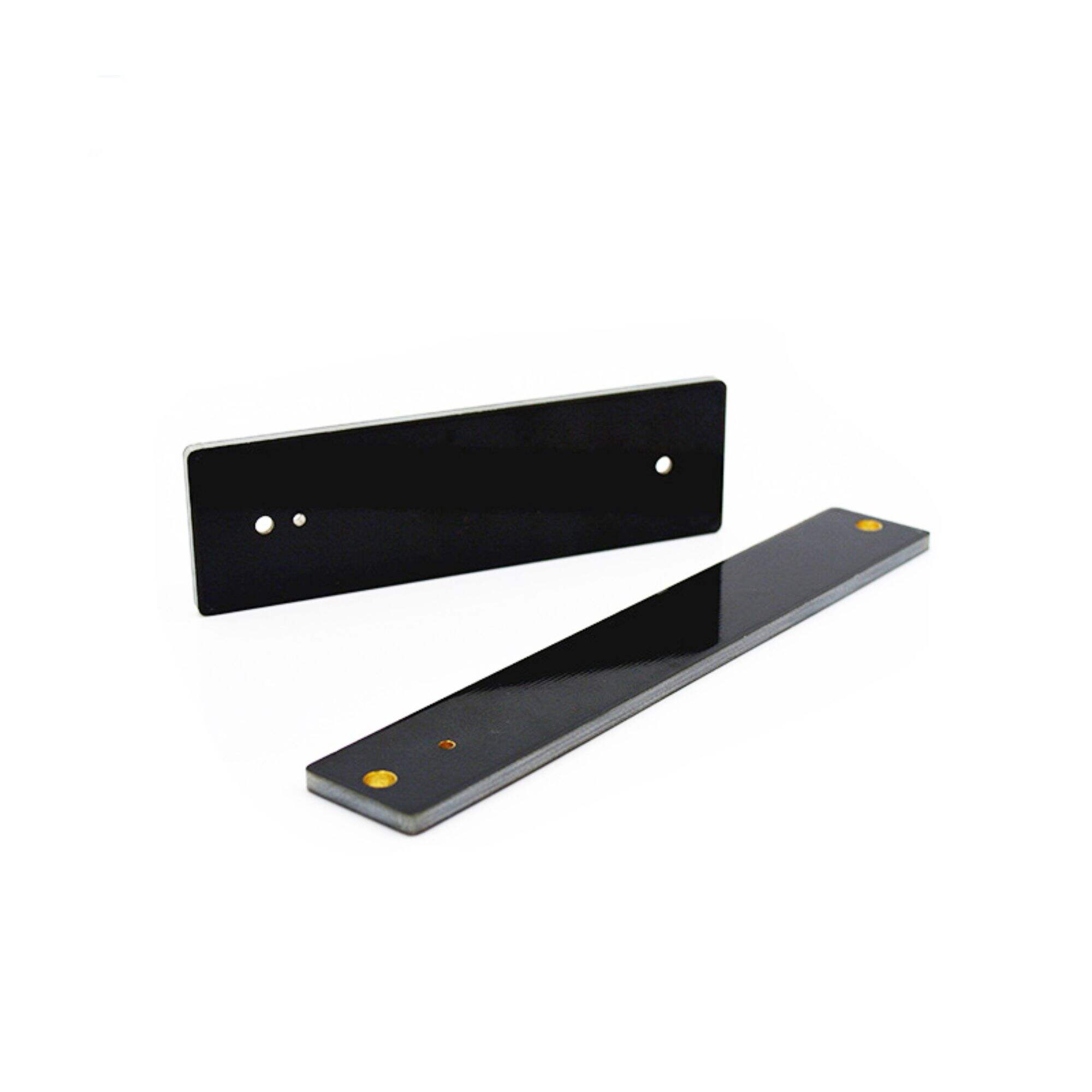Գրադարանները բացառություն չեն Գրադարանների կառավարման մեջ ռադիոֆրակվենցիային նույնականացման (RFID) տեխնոլոգիայի ինտեգրումը զարգացրել է այդ հաստատությունների գործունեության ձեւը, ինչը զգալի բարելավումներ է ապահովել տարբեր հիմնական ոլորտներում: Այս համապարփակ ուղեցույցը խորանում է այն հարցում, թե ինչպես է RFID տեխնոլոգիան փոխում գրադարանային գործունեությունը, դրա օգուտները, մարտահրավերները, ինչպես նաեւ ապագայի հեռանկարները:
RFID կամ ռադիոֆրեկվենցիային նույնականացում, անլար տեխնոլոգիա է, որը օգտագործում է էլեկտրամագնիսական դաշտեր, որպեսզի ավտոմատ կերպով հայտնաբերի եւ հետեւի առարկաներին միացված պիտակները: Գրադարանի համատեքստում RFID տեխնոլոգիան հնարավորություն է տալիս գրադարանի կառավարմանը համակարգել տարբեր գործընթացներ, ինչպիսիք են գույքագրության հետեւումը, գրքերի շրջանառությունը եւ ակտիվների ապահովումը:
RFID համակարգը բաղկացած է մի քանի հիմնական բաղադրիչներից, այդ թվում'
Երբ RFID տեգով գրադարանի մի իր մոտենում է ընթերցողին, ընթերցողը ակտիվացնում է տեգը, որը փոխանցում է իր պահված տեղեկատվությունը: Այս գործընթացը թույլ է տալիս ավտոմատ կերպով նույնականացնել, նվազեցնելով ավանդական շերտային կոդերի սկանավորման եւ գծային աշխատանքային հոսքերի անհրաժեշտությունը:
RFID տեխնոլոգիան զգալիորեն արագացնում է նյութերի վարկավորման եւ վերադարձման գործընթացը: Գրքերը կարող են տեղադրվել ընթերցողի վրա առանց յուրաքանչյուր գրքի առանձին-առանձին սկանավորելու: Այս առանց շփման ընթերցման հնարավորությունը թույլ է տալիս միանգամից մշակել բազմաթիվ իրեր, հաճախորդներին արագ տեղափոխելով դուրս գալու գործընթացում:
RFID-ի միջոցով գրադարանները կարող են ավելի արդյունավետ կատարել գույքահավաքների ստուգումներ: Աշխատակիցները կարող են օգտագործել RFID ընթերցիչներ ամբողջական դարակները արագ սկանավորելու համար, նվազեցնելով պահեստային ստուգումների ժամանակն ու ապահովելով, որ բոլոր նյութերը հաշվառված լինեն:
RFID համակարգերը բարելավում են գրադարանի անվտանգությունը՝ իրական ժամանակում ապահովելով ակտիվների հետեւում: Եթե որեւէ իր դուրս է բերվում առանց պատշաճ ստուգման, RFID դարպասները կարող են ազդանշաններ գործարկել, նվազեցնել գողությունը եւ բարելավել իրերի վերականգնման մակարդակը: Ավանդական անվտանգության միջոցները չեն կարող հավասարվել RFID համակարգերի ճշգրտությանը եւ հուսալիությանը:
Ամենահարմարավետ միջոցը ինքնակառավարման կիոսքերն են, որտեղ հաճախորդները կարող են իրենց սեփական գրքերը վերցնել եւ վերադարձնել: Այս առանձնահատկությունը ոչ միայն նվազեցնում է սպասման ժամանակը, այլեւ թույլ է տալիս գրադարանի աշխատակիցներին կենտրոնանալ հաճախորդների հետ ավելի գրավիչ փոխազդեցությունների վրա:
Գրադարանները կարող են իրական ժամանակում գույքագրություն իրականացնելու համար օգտագործել RFID տեխնոլոգիայով հագեցած շարժական տրանսպորտային մեքենաներ: Այս մատչելիությունը հնարավորություն է տալիս գրադարանապետերին ճշգրիտ հաշվել պահեստները եւ արագ հայտնաբերել կորած իրերը:
Ավտոմատացված դասակարգման համակարգերի ներդրումը կարող է կտրուկ կրճատել գրքերի վերադարձման ժամանակահատվածը: Այս ավտոմատացումը ոչ միայն բարելավում է վերադարձի գործընթացը, այլեւ բարելավում է ապրանքների պահեստավորման ճշգրտությունը:
RFID համակարգի ներդրման հետ կապված նախնական ծախսերը կարող են զգալի լինել: Գրադարանները պետք է հաշվի առնեն ոչ միայն պիտակների եւ ընթերցիչների ծախսերը, այլեւ սարքավորումների տեղադրումը եւ անձնակազմի ուսուցումը:
RFID համակարգերի ինտեգրումը առկա գրադարանային կառավարման լուծումների հետ կարող է մարտահրավերներ առաջացնել, հատկապես հնացած տեխնոլոգիաներով ավելի հին գրադարանների համար: Այս խոչընդոտները հաղթահարելու համար կարեւոր է մանրակրկիտ պլանավորման եւ իրականացման ռազմավարությունները:
RFID-ի օգտագործումը հարցեր է առաջացնում հաճախորդների գաղտնիության եւ տվյալների անվտանգության վերաբերյալ: Գրադարանները պետք է ապահովեն, որ պատասխանատու կերպով են վերաբերվում անձնական տեղեկատվությանը եւ համապատասխանում են համապատասխան կանոնակարգերին եւ օրենքներին:
RFID տեխնոլոգիայի շարունակական առաջընթացը խոստանում է համակարգերը դարձնել ավելի արդյունավետ եւ հուսալի: Օրինակ, թեգերի ճշգրտության բարելավումը եւ ընթերցման արագության բարձրացումը կարող են հեղափոխություն մտցնել գրադարանային գործողությունների օգտագործողի փորձի մեջ:
RFID տեխնոլոգիաների հասունացման հետ մեկտեղ, դրա կիրառումը կարող է տարածվել այնպիսի ոլորտների վրա, ինչպիսիք են թվային իրավունքների կառավարումը եւ օգտագործողի մուտքի վերահսկողության բարելավումը, որոնք գրադարաններին ավելի շատ գործիքներ են տրամադրում հաճախորդներին արդյունավետորեն ծառայելու համար:
RFID-ի ներմուծումը ոչ միայն բարելավում է գործառնական արդյունավետությունը, այլեւ հարստացնում հաճախորդի ընդհանուր փորձը: Օգտագործողների կարիքներին համապատասխան նյութերի եւ ծառայությունների ավելի արագ հասանելիության շնորհիվ գրադարանները կարող են իրենց դիրքավորել որպես համայնքի ավելի արժեքավոր ռեսուրսներ:
 Մանրամասներ : RFID գրադարանային պիտակները բարելավում են տվյալների ավտոմատ հավաքագրումը գրադարաններում, ապահովելով գրքերի եւ այլ նյութերի հուսալի նույնականացման եւ հետեւելու հնարավորություններ:
Մանրամասներ : RFID գրադարանային պիտակները բարելավում են տվյալների ավտոմատ հավաքագրումը գրադարաններում, ապահովելով գրքերի եւ այլ նյութերի հուսալի նույնականացման եւ հետեւելու հնարավորություններ:
 Մանրամասներ : Դիզայնավորված է ծանր միջավայրերում ակտիվների հետեւելու համար, այս հակամետաղական RFID պիտակները հարմար են ինչպես ներքին, այնպես էլ արտաքին օգտագործման համար:
Մանրամասներ : Դիզայնավորված է ծանր միջավայրերում ակտիվների հետեւելու համար, այս հակամետաղական RFID պիտակները հարմար են ինչպես ներքին, այնպես էլ արտաքին օգտագործման համար:
 Մանրամասներ : Հիմնականում օգտագործվում է գյուղատնտեսության մեջ, RFID ականջային պիտակները բարելավում են անասունների նույնականացումը, բայց կարող են ցուցադրել RFID տեխնոլոգիայի ավելի լայն օգտագործումը:
Մանրամասներ : Հիմնականում օգտագործվում է գյուղատնտեսության մեջ, RFID ականջային պիտակները բարելավում են անասունների նույնականացումը, բայց կարող են ցուցադրել RFID տեխնոլոգիայի ավելի լայն օգտագործումը:
Ի՞նչն է RFID տեխնոլոգիայի հիմնական օգուտը գրադարաններում: RFID տեխնոլոգիան բարելավում է վարկի եւ վերադարձի արդյունավետությունը, օպտիմալացնում է պաշարների կառավարումը եւ բարելավում անվտանգության միջոցները:
Ի՞նչ մարտահրավերների կարող են բախվել գրադարանները RFID համակարգերը կիրառելիս: Գրադարանները կարող են հանդիպել բարձր սկզբնական ծախսերի, տեխնիկական ինտեգրման խնդիրների եւ գաղտնիության եւ անվտանգության վերաբերյալ մտահոգությունների:
Ինչպե՞ս է RFID տեխնոլոգիան բարելավում գրադարանի այցելուների փորձը: Ավելի արագ վճարման համակարգերի եւ նյութերի ավելի լավ հասանելիության շնորհիվ հյուրերը կարող են վայելել գրադարանի ավելի պարզ եւ բավարարող փորձը:
Կա՞ն հատուկ RFID արտադրանքներ, որոնք նախատեսված են գրադարանների կառավարման համար: Այո, RFID գրադարանային պիտակները եւ հակամետաղական պիտակները հատուկ նախատեսված են գրադարանային աշխատանքները բարելավելու համար:
Ի՞նչ ապագա ունի RFID-ը գրադարանների կառավարման ոլորտում: RFID-ի ապագան հետաքրքիր հնարավորություններ է տալիս հետախուզման եւ անվտանգության ոլորտում առաջընթացների համար, ինչպես նաեւ օգտագործողների փորձի բարելավման եւ գործառնական արդյունավետության համար:
Եզրափակիչ, RFID տեխնոլոգիայի կիրառումը գրադարանների կառավարման մեջ փոխակերպիչ ազդեցություն ունի՝ բարելավելով ինչպես գործառնական արդյունավետությունը, այնպես էլ հաճախորդների փորձը: Այս տեխնոլոգիաների կիրառումը այժմ հիմք է ստեղծում ավելի խելացի եւ արդյունավետ գրադարանային համակարգի համար, որը կարող է հմտորեն բավարարել ժամանակակից օգտագործողների կարիքները:

Copyright © ©Copyright 2024 Greatest IoT Technology Co., Ltd all rights reserved - Privacy policy